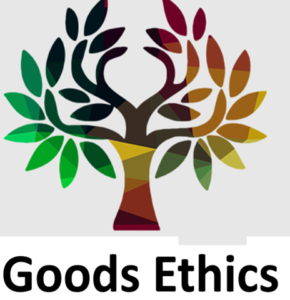Ethics and the Emergence of World Trade
The emergence of world trade is revealing much to us about how to succeed in a global economy. But to understand the global marketing we must learn to think like people first and business executives second. This of course seems to be easier said than done.
Everywhere we look our senses are bombarded with corporate reasoning that resembles intellectual incest more than logic. First we are bombarded by boardroom news releases and management consultant incantations that progress requires strategic positioning such as the formation of trading blocks, the acquisitions and mergers of leading brands, the consolidation of distribution systems, or the establishment of restrictive supplier and customer alliances, just to name a few. Since these strategies are so popular they must work, right? Do not be so sure of this.
A closer look at world trade reveals that these developments are unsustainable surface tactics at best, and distractions at worst. The real strategic developments, which will carry the most sustainable advantages, are found in the underlying background factors of technology and human behavior. As the explosion in information and communication technology brings people closer together in world terms, the power behind global business shifts from structural systems to people systems. As people systems emerge and interact with other people systems a powerful invisible hand extends its reach to influence whom the new winners and losers will be. This invisible hand is our system of ethics.
Our system of ethics forces people systems to develop quality in their behavior. Acting as a filter to remove unwanted behavior while retaining and developing good behavior, this filtering process is achieved through the pursuit of four attributes all human societies strives for:
- Logical processes and internal consistency.
- Coherence with other strong theoretical positions.
- Utility for individuals, groups, and humanity.
- Transactional success in a repeatable social system.
When applying the system of ethics we quickly find ourselves doing things differently, and these differences will open doors for world trade.
Our system of ethics forces us to conduct ourselves, as we would have others behave. If we choose to compete fairly, others will be encouraged to do the same and trade will be a controllable enterprise where marketable products and services thrive in predictable ways. Conversely, if we choose to reserve certain advantages only for ourselves at the expense of other trading partners, our outcomes at best will be uncontrollable as the market will react to our trickery with trickery of its own resulting in lost opportunities for the system as a whole.
Our system of ethics forces us to think in terms of quality. In a global economy no sale is just a sale. In a global economy every sale is linked severely to the endless chain of world suppliers who also participate in that sale. In this economic environment any degree of non-quality passed along to a single customer creates a ripple effect of failure costs throughout the world system. Even though the initial poor quality did not harm the original seller financially in that instance, a much greater harm was passed along to society and the world. Poor quality by others harms us all every hour of every day. Knowing this, our system of ethics requires us to do quality all the time, not just when it pays us immediately to do so.
Our system of ethics forces global traders to respect the ways of others. Before any significant trade can be consummated there must exist a certain mutual interest, respect, and trust which underlies all trade. There must exist the possibility of transactions, which meet the needs of both parties, not just one party at the expense of the other. There must exist a mutual respect for the ways of each so that neither will intentionally nor unintentionally offend the other. For trade to occur there must be trust between trading partners. Each party must know the other is committed to the relationship, that stable operating environments of law, civil order, and commerce will be maintained, and that problems which arise will be resolved by a due process which is fair to all. Mutual interest, respect, and trust are also central ingredients of people systems, and where there are people systems the power behind the people systems invariably will be their ethics system.
Therefore our success as world traders in the long run will not depend on the structures we organize around as they are shallow, tactical and unsustainable at best. Our success will follow from strategies that focus on the quality of our people systems and the faithful use of technology and ethics which support them.

